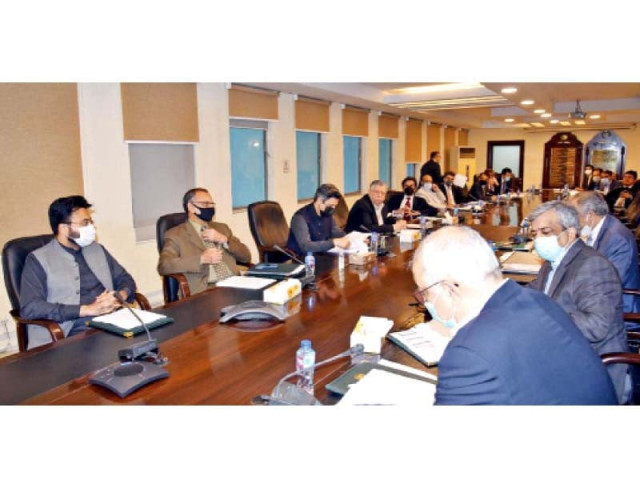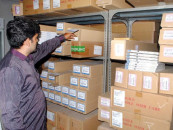Govt delays textile policy approval
Decision deferred due to disagreement over quantum of subsidies on gas, electricity

The government on Monday again deferred approval of the textile policy, at least for the fifth time in less than a year, due to disagreement over the quantum of subsidies on gas and electricity amid sacred fiscal and natural resources.
“The Economic Coordination Committee (ECC) of the cabinet constituted a sub-committee to review and present an updated policy before it in a couple of weeks,” said a statement issued by the Ministry of Finance.
The sub-committee will comprise representatives of the Ministry of Commerce, Finance Division, Ministry of Industries and Production, Power and Petroleum Divisions, Federal Board of Revenue and State Bank of Pakistan.
Before departing to Washington on almost a two-week-long visit, Finance Minister Shaukat Tarin had convened a special meeting of the ECC to give nod to the textile and apparel policy (2020-25).
However, the ECC was unable to build consensus due to objections made by Energy Minister Hammad Azhar and the finance minister.
It was also the last ECC meeting chaired by Tarin during his six-month short constitutional stint as finance minister which is set to end on coming Friday.
The government could not get him elected as senator during the given time frame despite Tarin’s repeated remarks that he had trust in Prime Minister Imran Khan’s promise.
The Ministry of Commerce had proposed to supply electricity and gas to the export-oriented textile sector at “regionally competitive” rates. The proposal was different from the lapsed policy of providing electricity at 9 cents per unit and RLNG at $6.5 per mmbtu.
Committee members were of the view that due to increasing prices of crude oil and RLNG in the international market, it would not be wise to comment on supply of both the resources at regionally competitive prices, according to the officials.
Hammad Azhar also raised the issue of shortage of gas and lack of fiscal space to provide electricity and gas at prices which were far less than the original rates. There was also an issue of provision of electricity and gas to all the industries in the name of exports.
In the last meeting of the Cabinet Committee on Energy, the finance minister had expressed the desire to disconnect the gas connections of all captive power plants on an immediate basis as the industries had failed to live up to their promises.
The minister only wanted the exporters to be given these resources at subsidised rates.
During the ECC meeting, the finance minister also showed dissatisfaction over the proposed export target of $20 billion for the textile sector for the current fiscal year and $25 billion for the next fiscal year.
The minister was of the view that these targets were not in line with the kind of fiscal incentives that had been proposed for the textile sector.
According to the original textile policy draft, the government wanted to extend fiscal incentives of Rs838 billion for five years but the number would change after the Ministry of Commerce proposed regionally competitive energy prices.
Fertiliser production
The ECC approved provision of gas to Pakarab Fertilisers and Fauji Fertiliser Bin Qasim Limited (FFBL) to meet demand for urea during the Rabi season 2021-22.
The ECC approved maximum provision of gas to Pakarab Fertilisers at 58 mmcfd and Fauji Fertiliser Bin Qasim at 63 mmcfd to ensure that the estimated demand for urea fertiliser was met through domestic production.
The decision will stabilise prices of urea and ensure its smooth supply throughout the country during the Rabi season 2021-22, according to the Ministry of Finance.
The decision will help produce an additional 175,000 tons of urea during the Rabi season, which will ensure its supplies at relatively affordable prices, according to an official of the Ministry of Industries.
Compared with the imported urea price of Rs7,000 per 50kg bag, the domestic gas-based production will ensure the production cost of around Rs1,800.
Farmers are already exposed to the highest DAP fertiliser price of around Rs7,000 per bag, up from around Rs3,800 last year, which could adversely affect the sowing of wheat crop.
Published in The Express Tribune, October 12th, 2021.
Like Business on Facebook, follow @TribuneBiz on Twitter to stay informed and join in the conversation.



















COMMENTS
Comments are moderated and generally will be posted if they are on-topic and not abusive.
For more information, please see our Comments FAQ